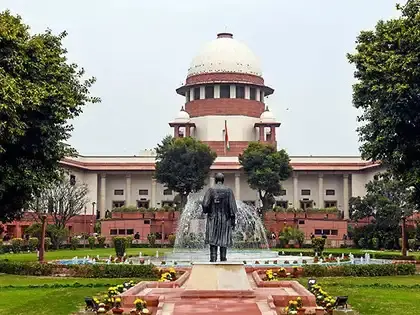Introduction
The Supreme Court has demarcated the limits to framing an additional substantive question of law in a second appeal preferred under Section 100 of the Civil Procedure Code (CPC) in the case of C.P. Francis Versus C.P. Joseph And Others. The decision provides specific direction to High Courts on restrictions on hearing second appeals, and lays down situations in which a new question of law can be framed and raised in an appeal.
Background
The Supreme Court in this case had to determine whether the High Court had jurisdiction to consider further substantial questions of law in terms of Section 100 of the CPC, during the pendency of the second appeal. The question arose in the context of a second appeal, and the appellant wished to appeal the High Court’s decision admitting the second appeal, after first having restricted only the substantial questions of law raised by the appellant in its second appeal. At the very late stage of the proceedings the High Court formulated further substantial questions of law on its own without giving any sufficient or proper reasons for doing so and without giving the party in grievance an opportunity to respond. The party in aggrievance had challenged that in the Supreme Court on the basis that the High Court’s jurisdiction was confined under Section 100 CPC, because of its limited nature with respect to questions of law, which does not allow for the re-appreciation of facts. The case also brought to light the tension that occurs with respect to the broad jurisdiction enjoyed by the High Court to ensure justice on the one hand and the limited jurisdiction formulated in statute to restrict the misuse of the second appeal jurisdiction on the other hand. By ruling in the manner that it did, the Supreme Court sought to preserve the protection afforded by the procedural restrictions imposed upon the High Court by formulating high level principles concerning the responsible exercise of that discretion.
Section 100 CPC constrains the jurisdiction of High Courts to only “substantial questions of law” in second appeals covering law in the general sense. This was done to restrict High Courts from interfering with concurrent findings of fact by the lower courts in the absences of any substantial questions of law. However, this raises the curious question; is it even possible to formulate any substantial questions of law after an appeal has been granted?
Keypoints
The Supreme Court made the following points regarding the framing of additional substantial questions of law under Section 100 CPC:
- Limits on the power: The High Court’s power to frame substantial questions of law in a second appeal is limited.
- Timing: Substantial questions of law, should usually be framed at the time of hearing the appeal.
- Further questions of law latterly: Further substantial questions of law can be the framed at a later stage if the Court considers that these questions arise from the case.
- Prejudice: The other party would, however, be given an opportunity to contest the additional questions of law.
- Not reappreciating: The High Court cannot frame further substantial questions of law which, if they were answered, would enable it to reappreciate the facts that were finally settled by the Courts below.
- Is there a duty to state reasons: The High Court must state the reasons that shows how it claims to be entitled to frame additional substantial questions of law requiring consideration.
Recent Developments
In this case, the Supreme Court found that the High Court had erred in framing additional substantial questions of law, and at a stage where it should not have framed, and that the High Court failed to provide sufficient reasoning for it being framed. The Court stated that while High Courts have discretion in framing additional substantial questions of law, but must frame, and can only frame, additional substantial questions of law, in exceptional circumstances, and with sufficient reasoning.
Conclusion
The judgement affirms the restricted power of High Courts under Section 100 CPC. It says that while High Courts can frame additional substantial questions of law, the substantial additional question of law must be justified soundly and also justifying the necessity to decide the case, and that the additional substantial questions of law are not paralyzing the other party. The judgement is an attempt to balance enjoying the right to ensure that the justice happens, and to make sure that we do not abuse the jurisdiction of second appeals.
“PRIME LEGAL is a full-service law firm that has won a National Award and has more
than 20 years of experience in an array of sectors and practice areas. Prime legal falls into the category of best law firm, best lawyer, best family lawyer, best divorce lawyer, best divorce law firm, best criminal lawyer, best criminal law firm, best consumer lawyer, best civil lawyer.”
Written by- Anwesha Anant


